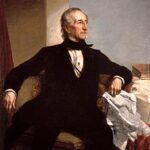The Historic Decision
President John Tyler made a bold diplomatic move in 1843. He authorized Caleb Cushing’s mission to China during a period of global trade expansion. This decision came after Britain’s successful Opium War opened Chinese markets to Western powers. Tyler recognized America needed formal commercial agreements to compete globally.
Negotiating the Treaty of Wanghia
Cushing arrived in China with clear instructions to secure favorable trade terms 📊. The negotiations took place in the Chinese port city of Macao in July 1844. Unlike European powers, America pursued peaceful diplomatic channels rather than military coercion. This approach earned Chinese respect and cooperation during treaty discussions.
Revolutionary Commercial Provisions
The Treaty of Wanghia granted America most-favored-nation status with China 💰. Five major Chinese ports opened exclusively to American merchants and ships. The agreement established extraterritorial rights protecting American citizens under U.S. law. These provisions created unprecedented opportunities for American businesses in Asian markets.
Impact:
Immediate Economic Transformation
Opening trade relations with China revolutionized American commerce within months 💰. New England merchants gained direct access to silk, tea, and porcelain markets. American exports of cotton, wheat, and manufactured goods surged dramatically. The treaty generated millions in new revenue for American businesses and the federal government.
Establishing Pacific Dominance
Tyler’s diplomatic success positioned America as a major Pacific trading power 🌍. The agreement served as a model for future Asian trade negotiations. American influence in the Pacific region expanded significantly through commercial relationships. This foundation enabled America’s later territorial acquisitions in Hawaii and the Philippines during the 1890s.
Long-term Constitutional Legacy
The treaty demonstrated presidential authority in foreign commerce during constitutional uncertainty. Tyler proved the executive branch could negotiate complex international agreements independently. Opening trade relations with China established precedents for modern American trade diplomacy. This success enhanced America’s global reputation as a peaceful yet formidable commercial power, influencing international relations for generations.
